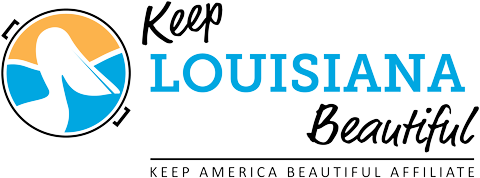
State Conference
[mpc_divider preset=”mpc_preset_2″ width=”80″ content_border_css=”border-color:rgba(255,255,255,0.88);” lines_color=”rgba(255,255,255,0.6)” lines_weight=”4″]November 2020
Session Six
An overview of the state’s Litter Laws and Effective Enforcement Strategies
Tuesday, November 24 – 9:00am to 10:30am CST
Understanding litter and illegal dumping laws and enforcement challenges is the first step in determining the most effective enforcement strategies. Strategies vary from strengthening local ordinances to using surveillance cameras, hotlines and media campaigns. They all play an important part in reducing litter and illegal dumping. This panel of litter enforcement experts will cover a wide variety of litter enforcement topics.
The Louisiana State Police along with Louisiana Department of Wildlife and Fisheries are the two state agencies charged with enforcing the state’s litter laws. Agency representatives will give an overview of the state’s litter laws and enforcement efforts.
The Louisiana Aquatic Litter Alliance, authored the Louisiana Local Government Litter Ordinance Template and Handbook as a tool to help strengthen litter enforcement on a local level. This publication serves as a turnkey, how-to guide with time-tested solutions for developing and implementing a litter control program in municipal and parish governments. This is a “do not miss” for parishes and municipalities who are interested in increasing local litter and illegal dumping enforcement.
Surveillance cameras can be a great enforcement tool to help you crack down on illegal dumping activity, when used correctly. The cameras styles, installation, supervision and maintenance make a big difference in whether or not your program is a success. Learn more about surveillance camera Do’s and Don’ts.
In 2018, the Calcasieu Parish Police Jury conducted a citizen survey as part of the Police Jury’s Strategic Planning Initiative. Survey results identified litter as the second most important concern to residents, behind drainage. The survey results served as a catalyst for the development of a comprehensive litter initiative called “Pick it Up.” The effort focuses on reducing litter by increasing awareness and education; engaging businesses and individuals to clean up; providing programs and resources; and strengthening enforcement efforts. Enforcement efforts include establishing a litter hotline, appointing a litter enforcement officer and creating an on-line citizen reporting tool.
Panelist

Trooper First Class Taylor Scrantz, Public Affairs Section, Louisiana State Police
Trooper First Class Taylor Scrantz began his law enforcement career in 2014 with the Louisiana State Police. During his tenure with LSP, he has had the privilege to be certified as a Standardized Field Sobriety Test Instructor, ARIDE (Advanced Roadside Impaired Driving Enforcement) Instructor, Field Training Officer (FTO), Taser Instructor, and Drug Recognition Expert (DRE). TFC Scrantz also had the opportunity to be a part of the Troop I DWI Task Force in 2018 and subsequently received the MADD (Mothers Against Drunk Driving) Law Enforcement Recognition award for the most DWI arrests in Lafayette Parish. TFC Scrantz currently serves as the public information officer for Troop A in Baton Rouge.

Mike Daniels, Criminal Enforcement Counsel, Louisiana Department of Environmental Quality
For the past eleven years, Mike has worked as Criminal Enforcement Counsel for the Louisiana Department of Environmental Quality’s Criminal Investigation Section. Mike was instrumental in authoring the La. Local Government Litter Ordinance Template and Handbook. Mike works with five commissioned law enforcement investigators who investigate criminal violation of the Louisiana Environmental Quality Act and has been named a Special Assistant District Attorney in seven parishes.

Rick Moore, Director, Keep St. Tammany Parish Beautiful, St. Tammany Parish Constable, and retired Major, St. Tammany Parish Sheriff’s Office
Rick is revered statewide for his commitment to litter enforcement and his willingness to share his knowledge with other cities to improve their litter enforcement efforts. He established an innovative approach to litter court which has become a model program for local governments. His work managing Keep St. Tammany Beautiful and the parish’s litter abatement crews have made a significant impact on the cleanliness and safety of the community.

Wyvette Pryor-Cousin, Litter Manager, Calcasieu Parish Police Jury and Director, Keep Calcasieu Beautiful
Wyvette oversees the newest program from the Calcasieu Parish Police Jury, “Pick it up Calcasieu. Education and awareness, engaging programing such as “Adopt a Spot” and enforcement are the cornerstones of the successful efforts under her leadership. Along with her deep passion for helping others and a desire to make a difference, Wyvette brings to her position years of experience in marketing, legal and human resources.
2020 Virtual Conference
Session OneNovember 5, 2020 – 9:00 am CST
KEYNOTE: The Anatomy of Resilience: Be Tired but Don’t You Quit
Kickoff the webinar series with an energizing, interactive presentation on embracing change, creating motivating environments, and emotional intelligence to inspire and reinvigorate your work.
LEARN MORE >
Session TwoNovember 10, 2020 – 9:00 am CST
Thriving in the “New Normal”: How COVID has changed the face of litter and how we engage with volunteers.
PPE litter and social distancing cleanups have created new challenges.
LEARN MORE >
Session ThreeNovember 12, 2020 – 9:00 am CST
Understanding Cigarette Butt Litter: Keep America Beautiful National Cigarette Butt Litter Marketing Study Results
Keep America Beautiful releases findings of a national study on the most effective approaches to reducing cigarette butt litter.
LEARN MORE >
Session FourNovember 17, 2020 – 9:00 am CST
Keep Louisiana Beautiful Focus on the Future: Educating, Engaging and Expanding
Keep Louisiana Beautiful announces two new initiatives to expand the organization’s reach and influence on university campuses and in local communities.
LEARN MORE >
Session FiveNovember 19, 2020 – 9:00 am CST
The Recycling Partnership: 2020 State of Curbside Recycling Report
The 2020 State of Curbside Recycling Report conducted by The Recycling Partnership, is an analysis of the dimensions, performance, stresses, and opportunities for improvement to curbside recycling. Explore the report’s implications for recycling in Louisiana.
LEARN MORE >
Session SixNovember 24, 2020 – 9:00 am CST
Understanding the Litter Laws and Effective Enforcement Strategies
Understanding litter and illegal dumping laws and enforcement challenges is the first step in determining the most effective enforcement strategy. Strategies vary from strengthening local ordinances to using surveillance cameras, hotlines and media campaigns.
LEARN MORE >


